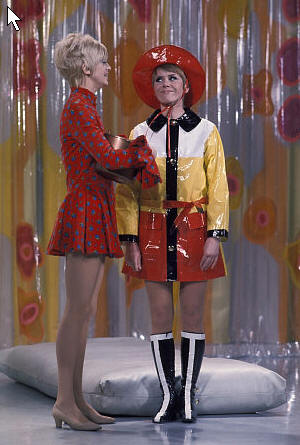 My father is a man whose vocabulary tends toward the mainstream. If he hits his thumb with a hammer, he may let out a “goddammit” or two, but he is rarely more profane than that. He does, however, employ with regularity a few amusing phrases such as, “You bet your bippy.” As a child, I once asked him, “Dad, if I stick my knife in the toaster, will I get electrocuted?” “You bet your bippy,” he replied. I never forgot that lesson in conductivity.
My father is a man whose vocabulary tends toward the mainstream. If he hits his thumb with a hammer, he may let out a “goddammit” or two, but he is rarely more profane than that. He does, however, employ with regularity a few amusing phrases such as, “You bet your bippy.” As a child, I once asked him, “Dad, if I stick my knife in the toaster, will I get electrocuted?” “You bet your bippy,” he replied. I never forgot that lesson in conductivity.
Last week in Federal Income Tax class, I channeled my father for emphasis. I had begun the usual introductory chapter on the definition of income. A few students had a hard time accepting that if a taxpayer receives compensation in the form of $50 cash and title to a $20,000 car, the taxpayer recognizes $20,050 in gross income. The students tried to twist the hypo in every direction, until finally I said, “Whether the taxpayer receives compensation in the form of cash or property, you bet your bippy that the taxpayer has income equal to the fair market value of the property received.”
Needless to say, the students had no idea what I meant. After class, I realized I wasn’t sure what I meant. I had no idea what a “bippy” was and why one would be betting it. The Oxford English Dictionary came to the rescue:
1968 N.Y. Times Mag. 6 Oct. 146/1 “[On Rowan and Martin’s Laugh-in] we say things like, ‘You bet your bippy!’ or ‘You bet your nurdle!’ I’m sure some people attach a dirty connotation to those words. We don’t even know what they mean; they’re just funny.”
I am sure my father was in the “funny” intepretative camp, not the “dirty” one. In any case, I won’t be using that phrase in class again, if only because it shows my age. You bet your bippy I’ve seen Laugh-In.
-Bridget Crawford


my set of Funk and Wagnals will never be let go.
I occasionally refer in class to “Madame Lazonga” which really shows both my age and that I grew up in New York City with elder acquaintances who like me benefited from a street education. In the last dozen years or so I’ve had one student who recognized the name.
I think it’s OK to drop pop culture references that you think only a few students will get, assuming it’s quick and has no bearing on the substance, even if they betray your age. Of course, I might think that because I’m sufficiently old that I’ve given up on pretending otherwise. Anyway, the small handful of smiles of recognition are often worth it, even if most of the class is oblivious.